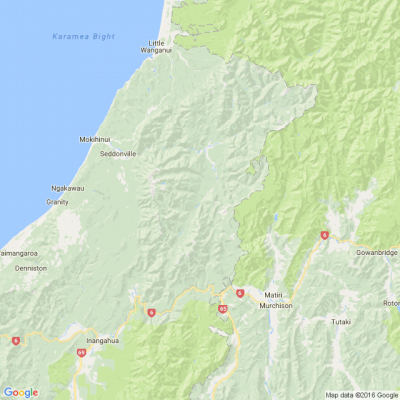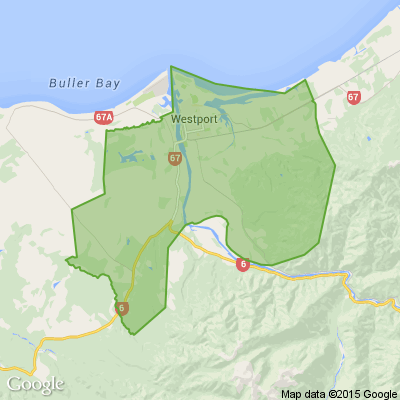Proposed West Coast ‘one district plan’ attracts submitters
By local democracy reporter Brendon McMahon:
Over 100 hundred submissions have come in so far for the proposed Te Tai o Poutini Plan (TTPP).
The submission close off date for the plan was recently extended again, until 5pm on November 11.
Plan project leader Jo Armstrong, of the West Coast Regional Council, said a large proportion of the more than 100 submitters included large submissions covering broad aspects of the proposed plan. They were not just confined to individuals talking about one point.
"People have expressed gratitude for the extension time," Armstrong said.
A wide variety of subjects had been covered in submissions so far.
This included requests for properties to be re-zoned - mainly in relation to rural/urban boundary issues.
"There's always a number of those sorts of things that come through, which is fine."
Just over 50% of the submissions to date had been via the on-line submission option.
The remaining submitters had submitted via traditional paper-based submissions, Armstrong said.
"It's important we have both, and no-one seems to be having difficulty filling in a form or typing up an on-line submission."
The proposed plan will eventually replace the individual Westland, Grey and Buller district plans.
Aspects of the proposed TTPP are already legally binding with affected property owners first notified by letter after the plan was formally notified on July 21.
The latest submissions extension came after a glitch in sending out new letters to all affected property owners, when some were initially incorrectly identified as having sites and areas of significance to Māori.
This was attributed to technical problems in the mapping system.
The TTPP only has immediate legal effect over some properties if they have identified Sites and Areas of significance to Māori, Historic Heritage, Ecosystems and Indigenous Biodiversity, Natural Character the Margins of water, Activities on the Surface of Water, and Designations.
Armstrong said they were not anticipating any other issue which might warrant a further submission period extension.
Once submissions closed off on November 11, they would be collated by staff for a formal submissions summary, anticipated to be tabled to the committee in late February.
If the committee approved the summary there would be further submissions period - but only for those who had already made a submission by November 11.
From there, formal hearings were expected to begin about the middle of next year.
*Public interest journalism funded through NZ On Air
Poll: Should the government levy industries that contribute to financial hardship?
As reported in the Post, there’s a $30 million funding gap in financial mentoring. This has led to services closing and mentors stepping in unpaid just to keep helping people in need 🪙💰🪙
One proposed solution? Small levies on industries that profit from financial hardship — like banks, casinos, and similar companies.
So we want to hear what you think:
Should the government ask these industries to contribute?

-
59.3% Yes, supporting people is important!
-
26.2% No, individuals should take responsibility
-
14.5% ... It is complicated
Have you got New Zealand's best shed? Show us and win!
Once again, Resene and NZ Gardener are on the hunt for New Zealand’s best shed! Send in the photos and the stories behind your man caves, she sheds, clever upcycled spaces, potty potting sheds and colourful chicken coops. The Resene Shed of the Year 2026 winner receives $1000 Resene ColorShop voucher, a $908 large Vegepod Starter Pack and a one-year subscription to NZ Gardener. To enter, tell us in writing (no more than 500 words) why your garden shed is New Zealand’s best, and send up to five high-quality photos by email to mailbox@nzgardener.co.nz. Entries close February 23, 2026.

Poll: As a customer, what do you think about automation?
The Press investigates the growing reliance on your unpaid labour.
Automation (or the “unpaid shift”) is often described as efficient ... but it tends to benefit employers more than consumers.
We want to know: What do you think about automation?
Are you for, or against?

-
9.7% For. Self-service is less frustrating and convenient.
-
43.1% I want to be able to choose.
-
47.2% Against. I want to deal with people.






 Loading…
Loading…





